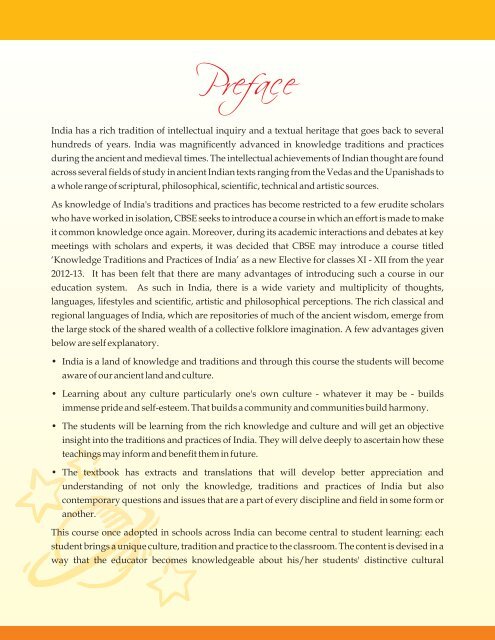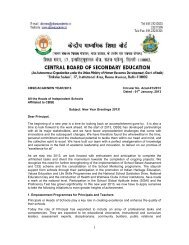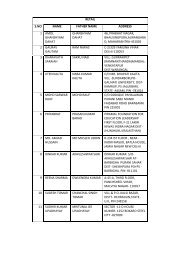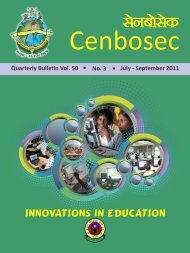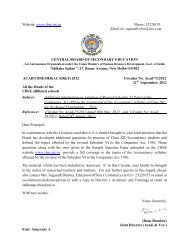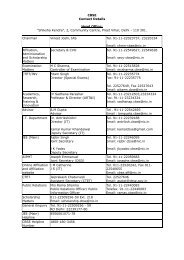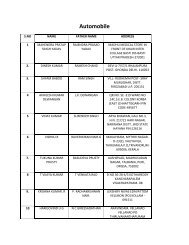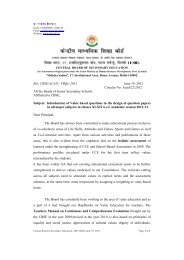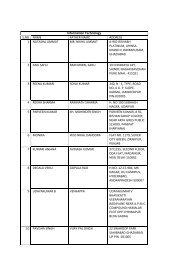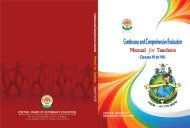Module 3 - CBSE
Module 3 - CBSE
Module 3 - CBSE
You also want an ePaper? Increase the reach of your titles
YUMPU automatically turns print PDFs into web optimized ePapers that Google loves.
Preface<br />
India has a rich tradition of intellectual inquiry and a textual heritage that goes back to several<br />
hundreds of years. India was magnificently advanced in knowledge traditions and practices<br />
during the ancient and medieval times. The intellectual achievements of Indian thought are found<br />
across several fields of study in ancient Indian texts ranging from the Vedas and the Upanishads to<br />
a whole range of scriptural, philosophical, scientific, technical and artistic sources.<br />
As knowledge of India's traditions and practices has become restricted to a few erudite scholars<br />
who have worked in isolation, <strong>CBSE</strong> seeks to introduce a course in which an effort is made to make<br />
it common knowledge once again. Moreover, during its academic interactions and debates at key<br />
meetings with scholars and experts, it was decided that <strong>CBSE</strong> may introduce a course titled<br />
‘Knowledge Traditions and Practices of India’ as a new Elective for classes XI - XII from the year<br />
2012-13. It has been felt that there are many advantages of introducing such a course in our<br />
education system. As such in India, there is a wide variety and multiplicity of thoughts,<br />
languages, lifestyles and scientific, artistic and philosophical perceptions. The rich classical and<br />
regional languages of India, which are repositories of much of the ancient wisdom, emerge from<br />
the large stock of the shared wealth of a collective folklore imagination. A few advantages given<br />
below are self explanatory.<br />
• India is a land of knowledge and traditions and through this course the students will become<br />
aware of our ancient land and culture.<br />
• Learning about any culture particularly one's own culture - whatever it may be - builds<br />
immense pride and self-esteem. That builds a community and communities build harmony.<br />
• The students will be learning from the rich knowledge and culture and will get an objective<br />
insight into the traditions and practices of India. They will delve deeply to ascertain how these<br />
teachings may inform and benefit them in future.<br />
• The textbook has extracts and translations that will develop better appreciation and<br />
understanding of not only the knowledge, traditions and practices of India but also<br />
contemporary questions and issues that are a part of every discipline and field in some form or<br />
another.<br />
This course once adopted in schools across India can become central to student learning: each<br />
student brings a unique culture, tradition and practice to the classroom. The content is devised in a<br />
way that the educator becomes knowledgeable about his/her students' distinctive cultural


